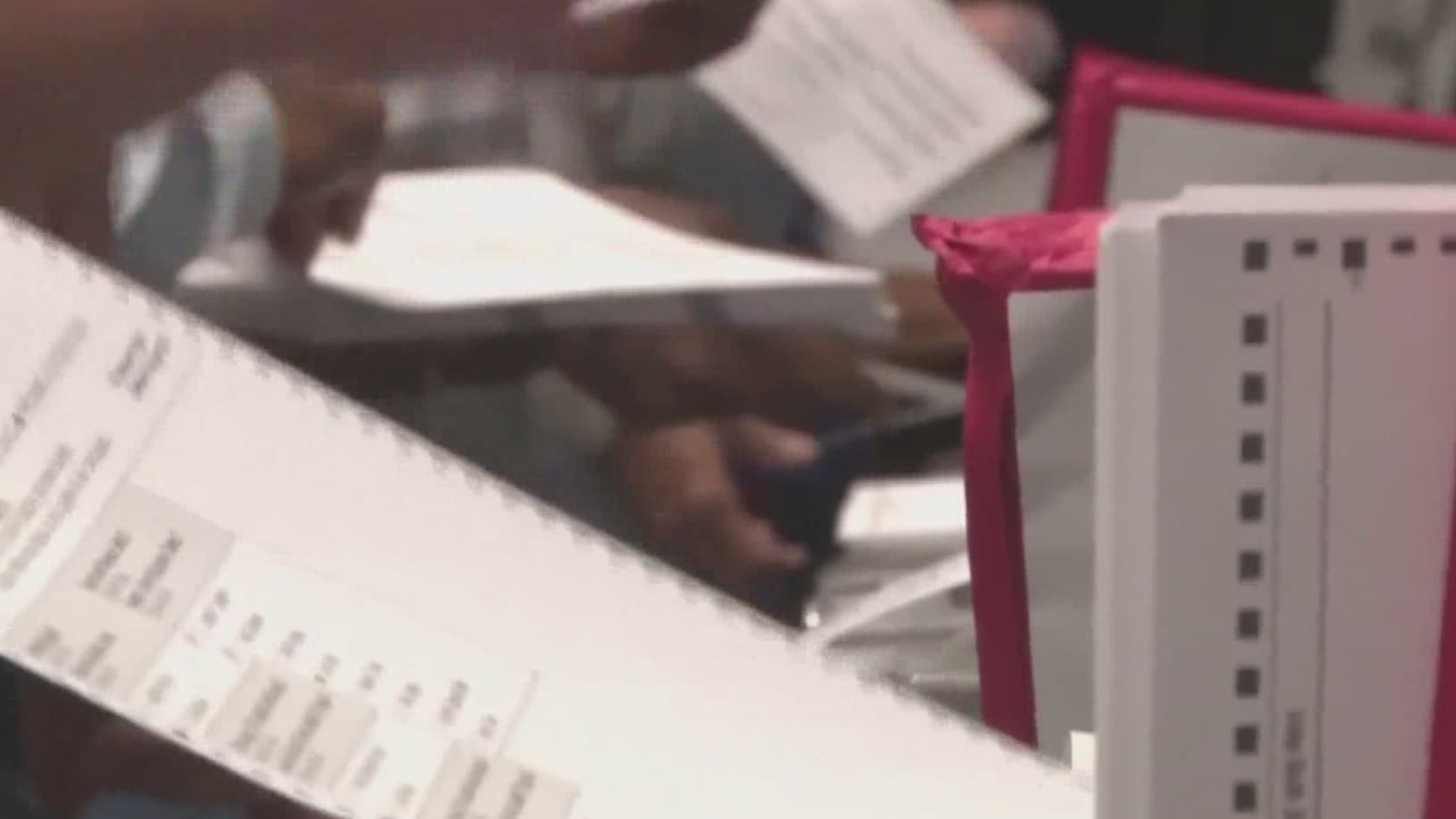FLORIDA, USA — As November's election season draws closer, voting activists' push to restore voting rights for felons in Florida hit another bump in the road.
But first -- here's the recap:
Florida voters approved a constitutional amendment in 2018. It allowed felons to vote once they completed their sentences. Later, Gov. Ron DeSantis signed a law that required felons to first pay all fines and restitution before they could vote again. Voting rights groups didn't like that, and challenged the law.
Then in May, a U.S. district judge struck down the law as a "pay to vote" system. But, this month, the 11th Circuit Court of Appeals granted the governor's request to review the ruling -- which put a pause on the decision.
That court is supposed to hold a hearing on the issue on Aug. 18, which is the same day as Florida's primary.
Voting rights advocates challenged that last part and asked the U.S. Supreme Court to intervene. But, in an emergency decision on Thursday, the Supreme Court declined to overturn the decision of the appeals court to hold off on the law until a hearing next month.
Three of the liberal justices dissented the denial, with Justice Sonia Sotomayor writing: "This Court’s order prevents thousands of otherwise eligible voters from participating in Florida’s primary election simply because they are poor."
Justice Sotomayor said the order also allows for the Court of Appeals for the Eleventh Circuit to "disrupt Florida's election process just days before the July 20 voter-registration deadline for the August primary."
Southern Poverty Law Center, a nonprofit legal advocacy organization specializing in civil rights and public interest litigation, in part, called the Supreme Court's decision "an unfortunate, but not insurmountable, setback in the ongoing struggle to achieve true democracy in our country."
U.S. District Judge Robert L. Hinkle sided with the plaintiffs back in May sparking this now back-and-forth between the court systems. Hinkle, himself, acknowledging he'd likely not have the last word on the matter.
Attorneys previously told 10 Tampa Bay the appeals process was "almost certain" to happen. In May, Tampa attorney Richard Harrison, who is the executive director of Floridians for a Sensible Voting Rights Policy said, "I don’t think anybody intended when they voted for Amendment 4 to make it okay for a convicted felon to walk away from restitution."
It is unclear at this time if a final decision will be reached on the matter ahead of November's election. If not, the Associated Press estimates 774,000 disenfranchised felons could be restricted from voting, if unable to pay their fines, in a battleground state.
- Here are the reopening plans for Tampa Bay school districts
- Florida's recent record day for COVID-19 might not have been quite that high
- Gov. DeSantis: Florida to cut ties with testing labs providing delayed COVID-19 results
- How to see Comet NEOWISE and the International Space Station
- Walmart shopper pulls gun on man in dispute over mask, deputies say
FREE 10 TAMPA BAY APP:
►Stay In the Know! Sign up now for the Brightside Blend Newsletter



